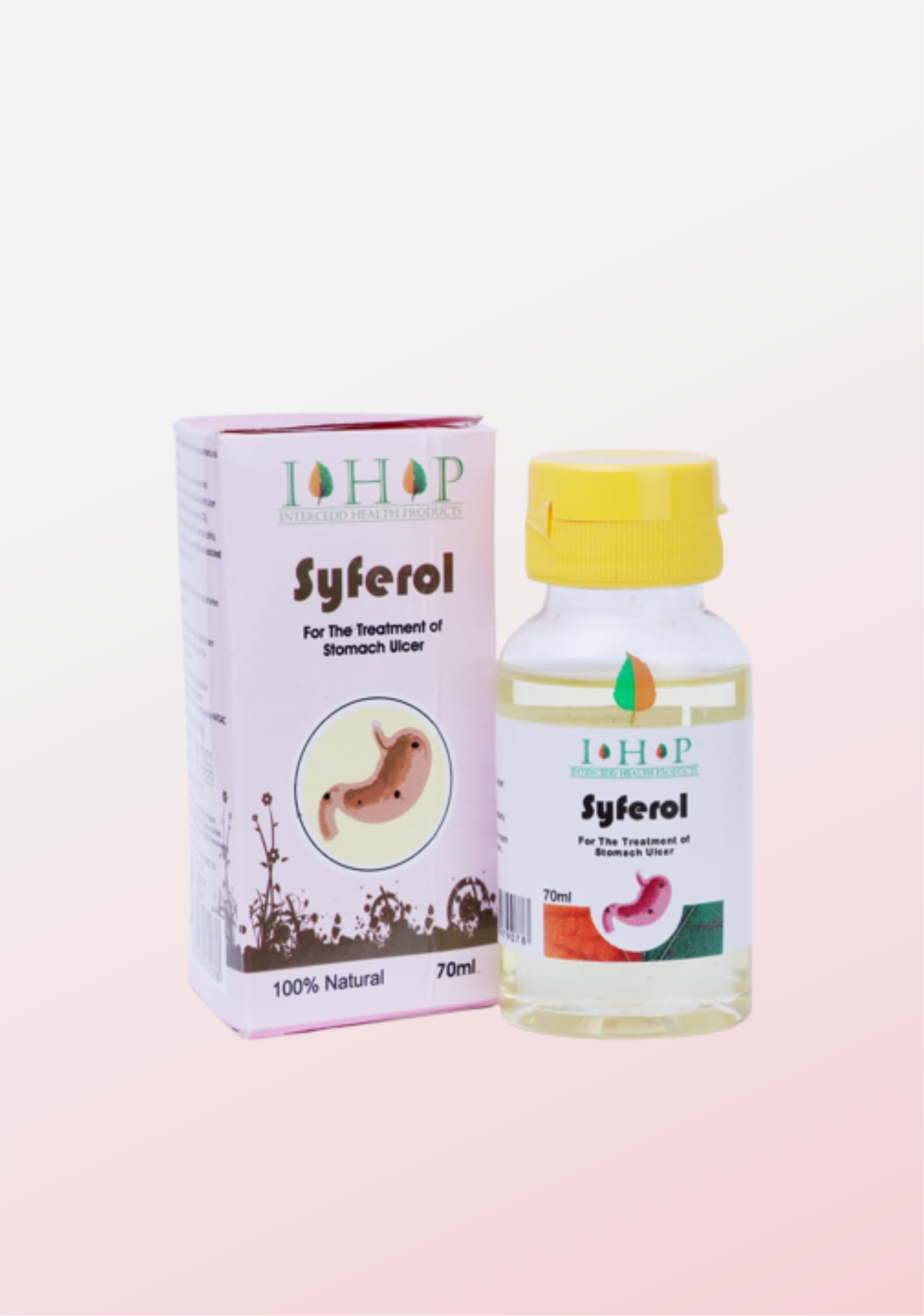7+ Best Supplement For Stomach Ulcers
Stomach ulcers are painful, burning, and gnawing sensations that can cause discomfort and dread. They are caused by H. pylori bacteria and stress, which weaken the stomach lining and increase stomach acid production. Supplements for stomach ulcers have emerged as a complementary approach to medication and natural healing methods. Some ingredients, like licorice root, can soothe and protect the stomach lining, while probiotics promote a healthy balance of gut bacteria. These supplements offer targeted support, helping to promote overall digestive health. While this information should not replace professional medical advice, it can be a valuable addition to the healing journey for those battling ulcers. It is essential to choose the right supplement for your specific needs and to consult with a doctor before starting any treatment regimen.
What Are Stomach Ulcers?

Stomach ulcers, those firecracker-like bursts of pain in your gut, are lesions that form on the stomach’s lining. But why do they decide to take up residence in your stomach?
Imagine your stomach as a muscular sac, its lining smooth and resilient. This lining’s job is to churn and break down food, all while fending off the stomach’s potent digestive juices. Now picture a raw spot on that lining – that’s an ulcer, an open sore caused by irritation or erosion.
The two main culprits behind these unwelcome guests? A sneaky bacteria called H. pylori and our not-so-friendly friend, stress. H. pylori burrows into your stomach lining, weakening its defenses. Stress, on the other hand, can crank up stomach acid production, leading to irritation. Other risk factors include smoking, excessive alcohol consumption, and certain medications like aspirin and ibuprofen.
So there you have it – a breakdown of what stomach ulcers are and why they might show up for an unwelcome visit. If you’re experiencing that burning pain, don’t despair! There are treatment options available, and we’ll explore them in the next section.
The Symptoms of Stomach Ulcers

Stomach ulcers. Just the word can conjure up images of searing pain and disrupted meals. But how do you know if that gnawing discomfort is just a passing rumble or something more? Believe me, I’ve been there. When a persistent burning sensation took root in my stomach, I knew something wasn’t right. Thankfully, learning the signs of stomach ulcers helped me get the diagnosis and relief I needed.
The most common symptom is a burning pain, often felt right between your breastbone and belly button. It might come and go, acting up on an empty stomach or at night. Do you Remember that greasy burger you devoured? Ulcer pain can often flare up after meals, a not-so-subtle reminder that maybe that wasn’t the best choice.
But pain isn’t the only culprit. You might also experience a feeling of fullness after eating even a small amount. That satisfying post-meal sigh? Swapped for persistent bloating and discomfort. Nausea and vomiting can also be unwelcome companions, sometimes even bringing up blood. In my case, it was the gnawing discomfort that first raised a red flag, but noticing these other symptoms alongside it solidified my decision to see a doctor.
If these symptoms become persistent or disrupt your daily life, don’t ignore them. Schedule an appointment with your doctor. Early diagnosis and treatment can make a world of difference in your healing journey. Remember, I’m not a doctor, and this information shouldn’t replace professional medical advice. But by recognizing the signs of stomach ulcers, you can take control of your health and get back to feeling your best.
Top Supplements for Stomach Ulcers
Now that we’ve identified the telltale signs of a stomach ulcer, let’s explore the potential power of supplements for stomach ulcers. Think of them as natural allies in your healing journey. While they shouldn’t replace medication prescribed by your doctor, certain supplements can offer targeted support. Some, like licorice root, may soothe and protect the stomach lining. Others, like probiotics, might help promote a healthy balance of gut bacteria, crucial for overall digestive health. Here are the top supplements for stomach ulcers:
1, IHP Syferol
If you’re looking for a natural approach to support your stomach ulcer healing journey, IHP Syferol might be worth exploring. This supplement combines two powerful ingredients: virgin coconut oil and holy basil (Ocimum sanctum) oil.
Virgin coconut oil boasts potential anti-inflammatory properties, which may help soothe the irritated stomach lining. Holy basil, also known as Tulsi, has been used in traditional medicine for centuries for its digestive benefits. Some studies suggest it might help reduce stomach discomfort and promote healing.
In my case, incorporating IHP Syferol alongside my doctor-prescribed treatment felt like a well-rounded approach. The easy-to-use dosage (30ml, twice a day) fits seamlessly into my routine. While I can’t say for certain it was the sole reason, the combination seemed to ease the discomfort and bloating I was experiencing.
Remember, I’m not a doctor, and this is just my personal experience. It’s important to discuss any supplements with your healthcare provider before incorporating them into your regimen. However, IHP Syferol’s blend of natural ingredients and its potential to soothe and support the digestive system make it a compelling option to explore for those seeking a complementary approach to managing stomach ulcers.
2, Probiotics
Probiotics – these trendy gut heroes have gained a reputation for a reason. They’re live bacteria with superstar potential, especially when it comes to stomach ulcers. Think of your gut as a bustling ecosystem, with both good and bad bacteria vying for space. Probiotics help tip the scales in favor of the good guys.
Here’s how they work their magic: By introducing beneficial strains like Lactobacillus and Bifidobacterium, probiotics can help create a healthy balance in your gut microbiome. This not only promotes overall digestive health but may also play a role in protecting the stomach lining. Studies suggest these friendly bacteria might even help reduce inflammation and support the healing process of ulcers.
I remember Sarah, my yoga instructor who always seemed to have boundless energy. Turns out, she was a secret weapon – probiotics! After battling an ulcer, she incorporated a daily probiotic supplement alongside her medication. Within weeks, she noticed a significant improvement in her digestion and a decrease in that nagging stomach discomfort. While Sarah’s experience is anecdotal, it highlights the potential benefits probiotics can offer in the fight against stomach ulcers.
3, Licorice Root (DGL)
One of the top contenders in the natural world’s arsenal against stomach ulcers is licorice root, specifically deglycyrrhizinated licorice (DGL). This licorice derivative boasts properties that may soothe the irritated stomach lining. Think of it as a marshmallow for your insides – a gentle coating that provides some relief.
DGL comes in various forms, from capsules and chewable tablets to powder you can mix into water. The recommended dosage typically ranges from 380mg to 1 gram, taken two to four times a day. However, it’s important to remember that everyone’s body reacts differently. It’s always best to consult your doctor before starting any new supplement, including DGL, to determine the right dosage for you.
While DGL is generally considered safe for most people in moderate doses, there can be some side effects. For example, high doses can elevate blood pressure, so it’s not recommended for those with hypertension. Pregnant and breastfeeding women should also avoid DGL due to potential risks.
I had a friend who was on a journey with stomach ulcers after incorporating DGL alongside my doctor’s prescribed medication offered a noticeable difference. The gnawing discomfort that had become a constant companion began to subside, replaced by a sense of calm in my stomach. It wasn’t a cure-all, but it provided a gentle support system that aided my healing. Remember, individual experiences may vary, and DGL should never be a substitute for professional medical advice. But for some, it can be a sweet ally in the fight against stomach ulcers.
4, Zinc Carnosine
Another powerhouse in the world of stomach ulcer supplements is zinc carnosine. This unique compound combines the mineral zinc with the amino acid carnosine. Zinc plays a vital role in cell health and tissue repair, both crucial for healing the stomach lining. Carnosine, on the other hand, acts like a tiny shield, helping to protect the stomach lining from damage caused by stomach acid.
Think of it like this: imagine zinc carnosine as a construction crew. The zinc provides the building materials, while carnosine acts as the scaffolding, allowing the crew to efficiently repair the damaged lining. This one-two punch can be a powerful ally in the fight against ulcers.
Studies have shown that zinc carnosine may help promote healing and reduce ulcer symptoms. One friend of mine, Sarah, credits zinc carnosine with a significant improvement in her ulcer discomfort. After incorporating it into her regimen alongside medication, she noticed a decrease in the burning sensation and a return to a more normal eating pattern. While individual experiences may vary, zinc carnosine offers a promising option for those seeking natural support for stomach ulcers.
5, L-Glutamine
Another promising contender in the supplement world for stomach ulcers is L-glutamine. This naturally occurring amino acid acts like a building block for the proteins that make up your stomach lining. Think of it as patching up the fortifications! Studies suggest L-glutamine may help strengthen and protect the lining, potentially reducing irritation and promoting healing.
Dosing recommendations typically range between 2-5 grams daily, but it’s always best to consult your doctor to determine the right amount for you. In my own experience, incorporating L-glutamine alongside my prescribed medication seemed to make a noticeable difference. The gnawing discomfort that had become my constant companion gradually subsided, and I felt a renewed sense of ease during meals. Remember, everyone’s experience is unique, and L-glutamine may not be a magic bullet for everyone. However, its potential to support healing makes it a supplement worth exploring with your doctor.
6, Aloe Vera
Another natural contender in the fight against stomach ulcers is aloe vera, a succulent plant with a long history of medicinal use. This wonder plant boasts properties that might be particularly helpful for ulcer sufferers. Studies suggest that aloe vera’s anti-inflammatory properties could help soothe the irritated stomach lining, promoting healing.
Personally, when I was diagnosed with an ulcer, I incorporated aloe vera juice into my routine alongside my IHP Syferol medication. While I can’t say for certain it was the sole factor, the burning sensation in my stomach did seem to lessen over time.
So, how can you incorporate aloe vera? Look for aloe vera juice specifically labeled for consumption. Be sure to follow the recommended dosage instructions carefully, as too much can have laxative effects. Remember, it’s always best to consult your doctor before starting any new supplements, including aloe vera, to ensure it’s safe for you.
7, Mastic Gum
Another natural contender in the fight against stomach ulcers is mastic gum, a resin extracted from the mastic tree. Chewing this resin has been a traditional remedy for digestive woes for centuries, and research suggests it might have some real benefits. Mastic gum’s potential lies in its antibacterial properties. Studies indicate it can help combat H. pylori bacteria, a major culprit in ulcer formation. One friend of mine, after incorporating mastic gum into their routine alongside their doctor-prescribed treatment, swore by its ability to soothe their stomach discomfort.
So, how do you use this unique supplement? Mastic gum comes in either tear-shaped pieces or powder form. You can chew on the tears like gum, or mix the powder with a little honey or water and swallow it. Remember, it’s not meant to be a delightful treat – mastic gum has a slightly bitter taste. But for some, the potential relief it offers might just be worth it.
8, Turmeric/Curcumin
Turmeric, the vibrant golden spice that adds warmth to curries and sunshine to your plate, also packs a surprising punch for stomach ulcers. This wonder ingredient boasts curcumin, a powerful anti-inflammatory compound. Research suggests curcumin may help reduce inflammation in the stomach lining, potentially easing discomfort. But that’s not all! Studies indicate curcumin might also promote stomach healing and even fight off H. pylori bacteria, a sneaky culprit in some ulcers.
While the research is promising, it’s important to note that curcumin isn’t the most easily absorbed by the body. To reap the benefits, consider pairing turmeric with black pepper, which contains piperine, a substance that can significantly enhance curcumin absorption. You can incorporate turmeric into your diet by adding a sprinkle to scrambled eggs, roasted veggies, or even a warm glass of milk. There are also readily available turmeric supplements but talk to your doctor before adding anything new to your routine.
FAQ:
What is the fastest way to cure a stomach ulcer?
The quickest method to heal a stomach ulcer is to diagnose and address the underlying cause. Most stomach ulcers are caused by an infection and require antibiotics as well as other treatments. The sooner you begin antibiotics and other therapies, the faster your ulcer will heal.
Can I take vitamin C if I have an ulcer?
Vitamin C, on the other hand, is a daily supplement that stomach pain patients may take to strengthen their health and immunity. Vitamin C improves resistance by blocking and removing Helicobacter pylori germs from the body.
What stops stomach ulcer pain immediately?
Stomach ulcers may be unpleasant and difficult to manage. NSAID pain medicines might cause stomach ulcers and worsen your discomfort. It is critical to use caution and use alternate pain medicines such as acetaminophen instead. Over-the-counter antacids are an effective way to relieve ulcer discomfort quickly.
Conclusion
So, there you have it! We’ve explored the world of stomach ulcers, from the telltale signs to the potential of supplements for stomach ulcers. Remember, ulcers can be a drag, but with a little knowledge and the right support, you can manage them and get back to feeling your best.
Let’s recap some key points. Medications are a cornerstone of ulcer treatment, but exploring supplements for stomach ulcers can be a valuable addition to your healing journey. These supplements offer targeted support, with some like licorice root potentially soothing the stomach lining, while others like probiotics promote gut health.
But remember, supplements aren’t a magic bullet. It’s crucial to consult your doctor before starting any new supplement regimen. They can help you determine if supplements for stomach ulcers are right for you and recommend the best options based on your individual needs.
In my journey, medication was key, but I also found incorporating IHP Syferol, a supplement specifically designed for stomach ulcers, to be incredibly helpful. While everyone’s experience is unique, IHP Syferol offered a natural way to support my healing alongside traditional treatment.
Remember, I’m not a doctor, and this information shouldn’t replace professional medical advice. But by taking control of your health, exploring all available options, and discussing supplements for stomach ulcers with your doctor, you can find the path to feeling your best again.






